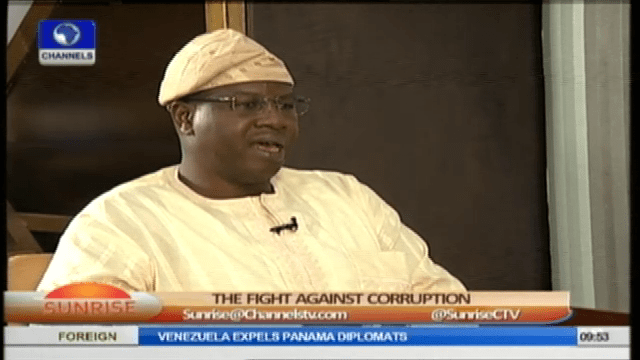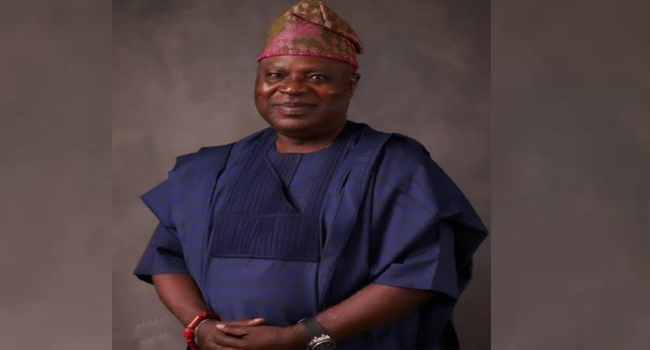
“We must be more militant about corruption. We must be more vigilant about corruption and we must be more bi-partisan,” Mr Gbadamosi stressed.
Speaking on Sunrise, Mr Gbadamosi said some agencies and non-governmental agencies were “doing quite well” in terms of whistle blowing but he discredited the Economic and Financial Crimes Commission, EFCC, for having a “rather chequered history”.
He cited an example of former Delta State governor, James Ibori, who was jailed in the United Kingdom for the same offences he was declared not guilty by a Nigerian court.
This, he said, puts a “massive, giant, ugly question mark on the integrity of the judiciary in Nigeria”. He, however, commended the efforts of the Chief Justice in sanitising the Judicial arm of government.
On the legislative arm of government, Gbadamosi expressed doubts that lawmakers were prepared to fight corruption as a budget presentation of 4.7 billion Naira by the EFCC was denied by the National Assembly.
While blaming politicians for the rot, Gbadamosi said that the PDP cannot be absolved from the stain as some of its members were corrupt, just as there were in other parties.
Responding to a comment that citizens who advocate stringent measures against corruption are the most corrupt ones, by President Goodluck Jonathan, a senior lecturer at the Nigerian Law School, Nelson Ogbuanya, said “the president was right.”
He went further to say that the trend was cultural, as corrupt persons and those who benefit from corruption were quick to speak against it. He maintained that corruption had become cultural, as ethnic groups expect their natives, who are in positions of power, to secure the wealth and good fortune of their tribe first.
On his part, a lecturer of the department of political science at the University of Lagos, Dele Ashiru, insisted that “you cannot fight corruption outside the State and once the State itself is corrupt or is corruption personified, there’s really nothing the agencies can do in terms of fighting corruption.”
He stressed that corruption was a global phenomenon; hence, it should not be fought from a partisan standpoint. “The important thing about corruption is what you do or refuse to do about corruption,” he said.




